Lesson 1 | Coordinate Relationships
Independent Points
The Coordinate logical relationships of Bible Logic are used to indicate the relationship between two or more pieces which each make their own independent contribution. That is to say, while the pieces will certainly relate to one another, neither is serving the other, neither is strengthening the other, neither is completing the other, neither is qualifying the other. In this category, each piece makes a separate point.
There are three logical relationships in this category. Do your best to understand the concept of each relationship by absorbing the information in charts below. The following steps will reinforce these things and then present you with a quiz to test what you have grasped.

Series (S)
Definition: Each piece makes its own independent contribution to a whole. (Series is the default coordinate relationship.)
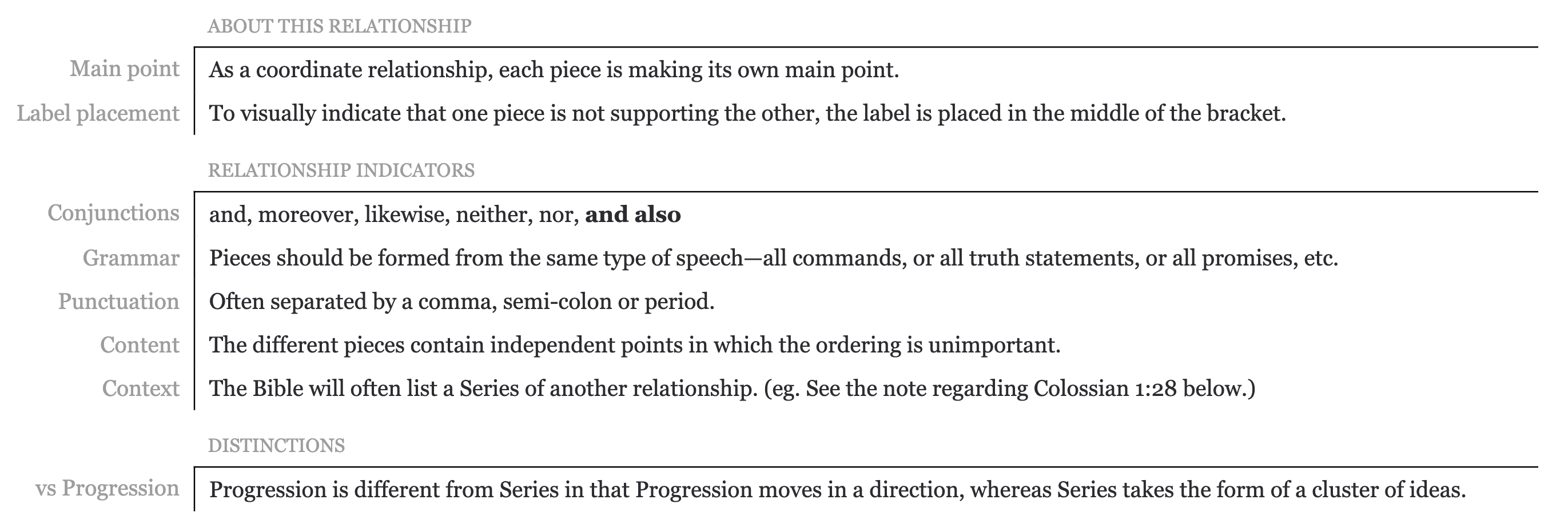
Everyday example: At the party, we sang Happy Birthday, played games and ate cake.

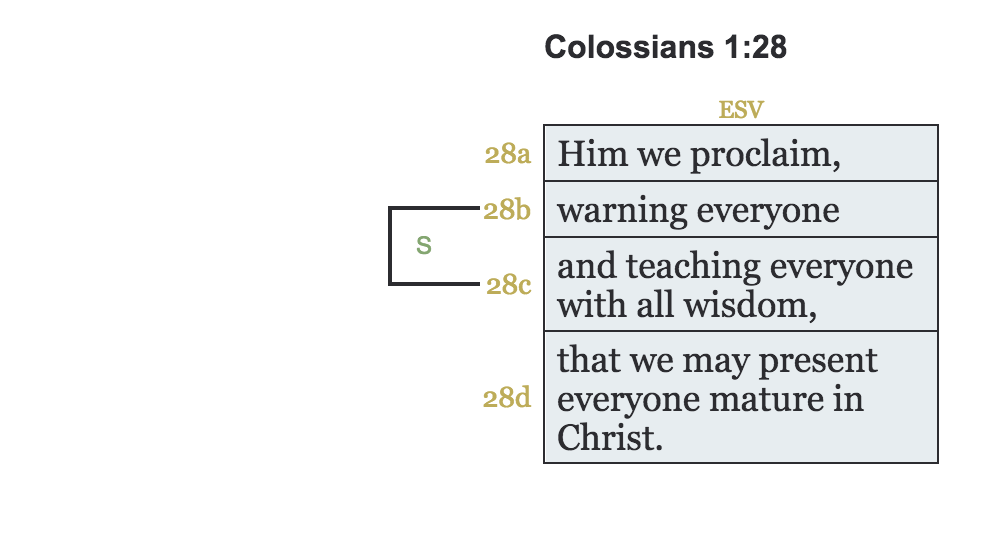
Note
Besides biblical examples for each relationship, we will also be presenting you with everyday examples that can help simplify things as you seek to learn these logical relationships. With regard to Psalm 108:8–9 above, you can see how it looks when a relationship spans more than just two pieces.
There are also something to point out with regard to conjunctions in the relationship charts. Note that one conjunction is bolded. This indicates that this conjunction is the best testing conjunction for this relationship. A testing conjunction is not necessarily the most common conjunction you will find, but is the most explicit expression of the relationship. When trying to determine the proper relationship, insert this conjunction in between the pieces you are connecting to test out if this is, in fact, the best choice.
Progression (P)
Definition: Like series, but each piece is a further step toward a climax.
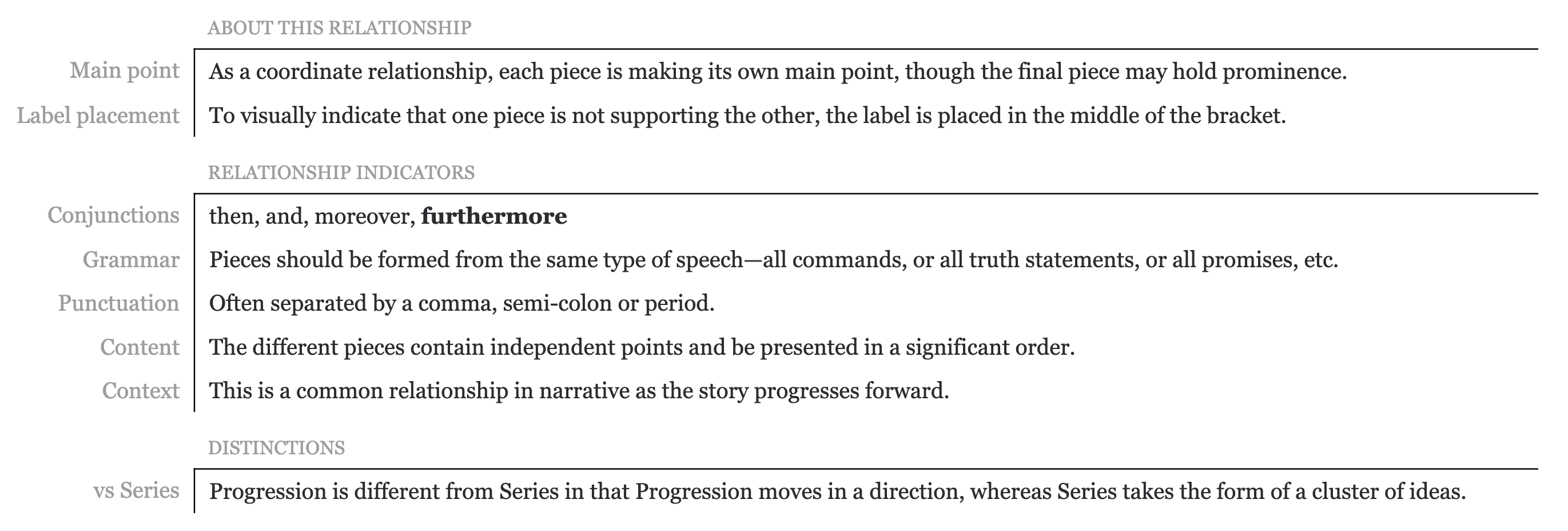
Everyday example: First put on the blindfold, then spin around five times, and finally swing at the piñata.
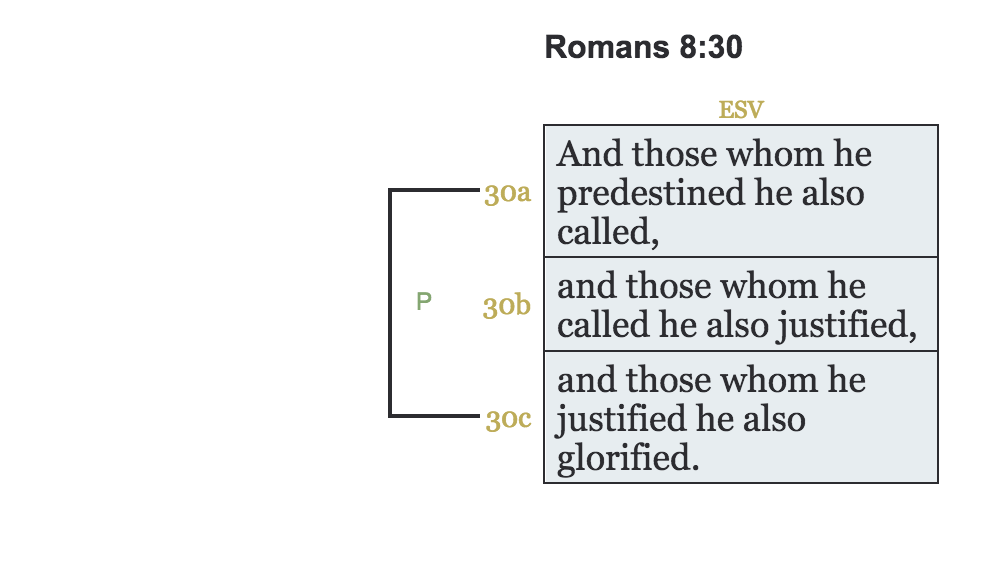
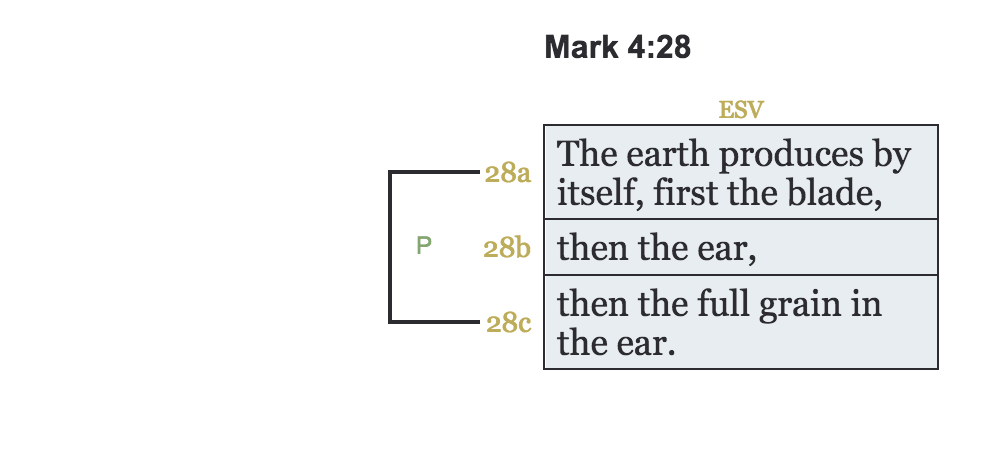
Alternative (A)
Definition: Each piece expresses a different possibility arising from a situation.
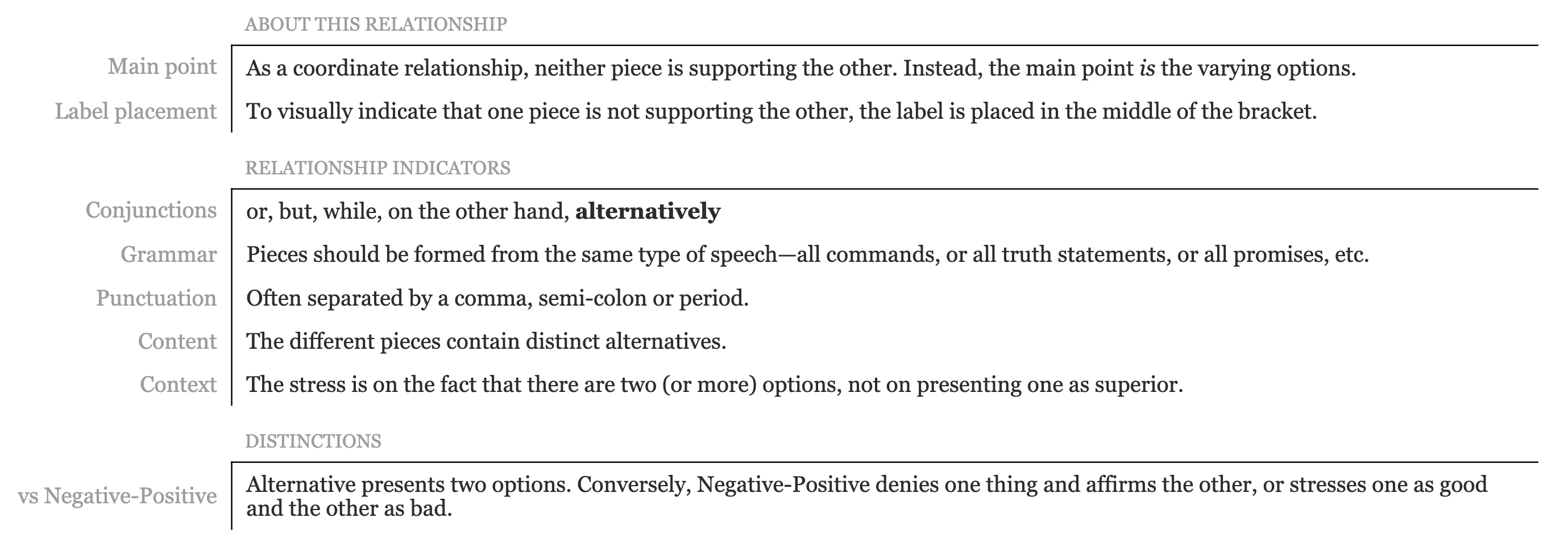
Everyday example: Do you want to open your presents or play a game?
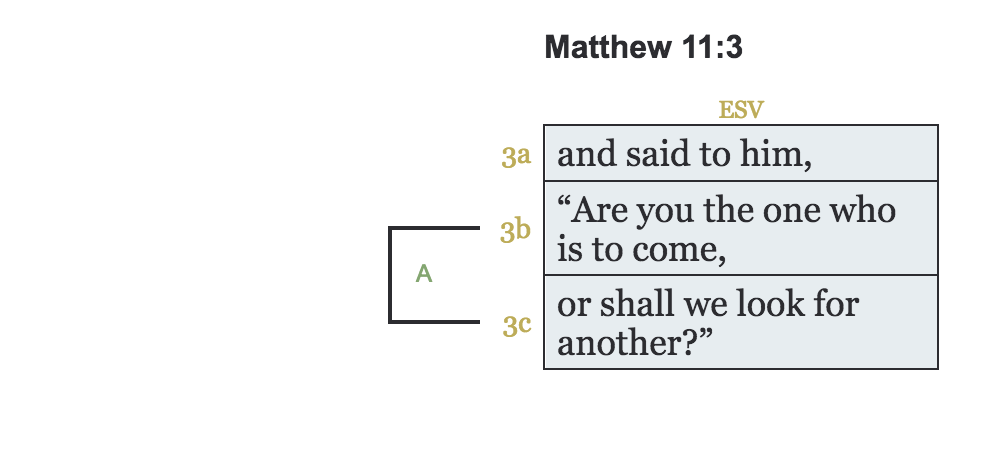

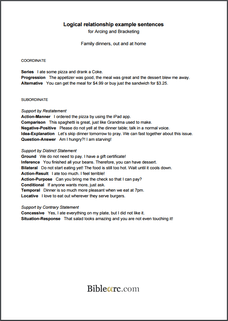 Logical Relationships—Everyday Examples, Set 2pdf
Logical Relationships—Everyday Examples, Set 2pdfA printable cheat sheet with simple, everyday examples of the 18 logical relationships, as shared above and in the coming lessons. Theme: a child's birthday party.